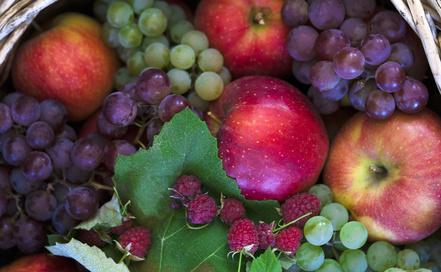
In 2016, the Commonwealth of Virginia, with the Department of Education (DOE) serving as lead agency, received an $8.8 million United States Department of Agriculture (USDA) Child Hunger Demonstration grant, the largest in the nation. The purpose of this grant was to provide school children with access to healthy meals where they live, learn, and play 365 days a year demonstrating childhood hunger can be eliminated. The grant is posed to improve student achievement and behavior, showing that when students are well nourished, they are ready to learn.
Partnership is crucial for executing and implementing this two-year demo grant. Major partners are USDA, Virginia Foundation for Healthy Youth, Share Our Strength, Feeding America, the Southeast United Dairy Association, Virginia Department of Health, First Lady of Virginia-Dorothy McAuliffe, and Virginia Cooperative Extension (VCE). Federal dollars from VCE Family Nutrition Program (FNP) are from Supplemental Nutrition Assistance Program-Education (SNAP-Ed) and the Expanded Nutrition Education Nutrition Program (EFNEP) funds. FNP’s mission is to teach limited-resource families and youth how to make healthier food choices and become better managers of available food resources for optimal health and growth. Thus, the mission of this grant makes FNP a needed partner as trained nutrition paraprofessionals can provide parents of school children the knowledge and skills to improve food management food skills, and at home nutrition practices.
For the project, trained VCE FNP paraprofessionals provided six lessons from the peer reviewed, evidence-based Eat Smart, Be Active curriculum along with food preparation and cooking skills. Paraprofessionals provide lessons to parents at the participating test school. Control schools were selected in the same city or county as the test school and shared similar demographics and characteristics as the test schools, but they did not receive the 365 Project resources. All schools were in rural Southwest Virginia (the counties of Buchanan, Grayson, Lee, Scott, Smyth, and cities of Galax and Bristol) and the City of Richmond. Each of these locations have high poverty rate, and free/reduced lunch rates that are at 55% or higher.
In addition to providing nutrition education to parents, the grant provides funding to provide school children three meals to eat at school. Breakfast is often a Grab and Go bag or Breakfast in the Classroom. In addition to free breakfast and lunch, school children eat a dinner meal prior to leaving school. The regional food bank provides and stores foods for the backpacks that provide food to children on the weekends and during school breaks such as holiday break. During the months of June, July, and August, parents of school children receive additional SNAP-Ed benefits from the Virginia Department of Social Services to help feed their children more adequately.
An outside evaluation company, Mathematica, assesses the test school children’s academic achievement factors, overall behavior and disciplinary changes, absentee rate, health indices, and other factors compared to control schools and pre intervention data. While the demo grant’s results are not complete, the VCE FNP has compiled results on nutrition behavior of school children’s parents completing the six FNP lessons. Upon completion of lessons, 100% of FNP participants showed improvement in one or more nutrition practices (i.e. plans meals, makes healthy food choices, prepares food without adding salt, reads nutrition labels or has children eat breakfast). One hundred percent of FNP participants showed improvement in one or more objectives related to management of food resource practices (i.e. plan meals, compare prices, does not run out of food or uses grocery lists).
With the first year of grant implementation, FNP and grant administrators learned some valuable “lessons”. These were:
- Solicit school principal and community buy-in
- Recognize principals for their support
- Promote FNC lessons at outside school events in rural communities where community buy-in is essential
- Schedule FNP classes at the times when school principals believe parents will attend
- Publish class schedules on DOE and VCE websites
- Hold programs at school field days and back to school events
- Test a system for class reminders (text, Facebook, email, etc.) to recruit FNP participants
This year (2017), Project 365 has established mini-grants to support the efforts of participating school divisions in promoting the VA 365 Project, engaging families and community partners in outreach activities, and sharing resource information. The mini-grants support back-to-school activities, volunteer recognition events, and other outreach efforts that benefit the participating schools. In addition, the grant monies provide a cookware set to each FNP participant that complete six lessons and accompanying activities. With using this educational incentive, Project 365 plans to increase parent enrollment and FNP lesson completion.
Contributor
Mary Ann McFarland, Virginia Tech, Virginia Cooperative Extension
Sources & Resources
Virginia Project 365. Virginia Department of Education, retrieved from Virginia.gov
(2016, April) News You Can Use Newsletter: What is the Virginia 365 Project? Virginia Department of Education, Office of School Nutrition, retrieved from Virginia.gov
VA 365 Project to End Childhood Hunger. The Alliance to End Hunger, retrieved from hungerfreecommunities.org
(2015, September 22nd). $8.8 million grant awarded to end childhood hunger in Southwest Virginia. WSLS 10, retrieved from wsls.com
